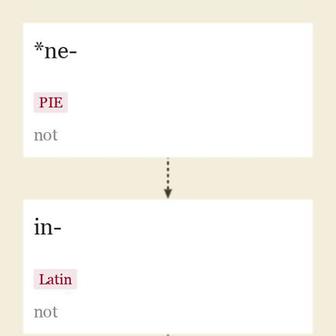inhospitable (adj.)
1560s, from French inhospitable (15c.), from Medieval Latin inhospitabilis (equivalent of Latin inhospitalis), from in- "not" (see in- (1)) + Medieval Latin hospitabilis (see hospitable).
Entries linking to inhospitable
"kind and cordial to strangers or guests," 1560s, from French hospitable, which is formed as if from a Medieval Latin hospitabilis, from the stem of Latin hospitari "be a guest," from hospes (genitive hospitis) "guest" (see host (n.1)). The Latin adjective was hospitalis, but this became a noun in Old French and entered English as hospital. Related: Hospitably.
word-forming element meaning "not, opposite of, without" (also im-, il-, ir- by assimilation of -n- with following consonant, a tendency which began in later Latin), from Latin in- "not," cognate with Greek an-, Old English un-, all from PIE root *ne- "not."
In Old French and Middle English often en-, but most of these forms have not survived in Modern English, and the few that do (enemy, for instance) no longer are felt as negative. The rule of thumb in English has been to use in- with obviously Latin elements, un- with native or nativized ones.
Trends of inhospitable
More to Explore
updated on December 07, 2020
Trending words
Dictionary entries near inhospitable
inhesion
inhibit
inhibition
inhibitor
inhibitory
inhospitable
in-house
inhuman
inhumane
inhumanity
inhumation

